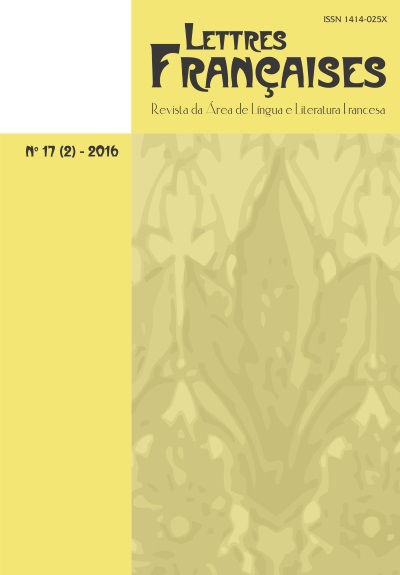The endless pursuit: modernity, novel, and poetry in Nadja, by André Breton
Keywords:
Modernity, surrealism, novel, objective chance, André Breton, society.Abstract
In a context of extreme rationalization and utilitarianism, that of the first decades of the twentieth century, the surrealist vanguard emerges as a way of endurance, seeking to perform and to find in art a place of fantasy and freedom which the modern world does not allow individuals to fully and autonomously live in. This pursuit for the meanings of life and the world, a trait of the problematic individual in conflict with his surrounding reality, as asserted by Georg Lukács, is manifest in the figure of Andre Breton, narrator and representation of the author himself in Nadja. In the beginning of the novel, he wanders aimlessly around the streets of Paris hoping to find in the big city – the greatest symbol of modernization – the sensory, the poetic, the essential, and the liberating experiences idealized by the surrealist art. Thus, the novel represents, on the one hand, the surrealist ideal of a poetic existence and a vital poetry in capturing the delicate and stormy relationship between the narrator and Nadja, who represents the very idea of freedom and creation, effulgent manifestation of desire, source of fascination and magical enchantment of existence; on the other hand, the novel also expresses the disappointment towards the transience of a passion that, being so overwhelming, simply cannot last. The aesthetic and artistic recreation of a sensual and idealist experience dissipates when faced with a reality that is always stronger and more abrasive than the poetic dream is able to endure.Downloads
Published
25/05/2017
Issue
Section
Artigos
License
Os manuscritos aceitos e publicados são de propriedade da Revista Lettres Françaises. É vedada a submissão integral ou parcial do manuscrito a qualquer outro periódico. A responsabilidade do conteúdo dos artigos é exclusiva dos autores. É vedada a tradução para outro idioma sem a autorização escrita do Editor ouvida a Comissão Editorial.

